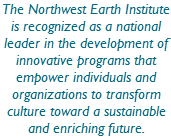You are currently browsing the tag archive for the ‘one garbage can a year’ tag.
 This week I had the chance to speak with long time NWEI volunteer and Metro’s Recycling Hotline Operator Betty Shelley about how she manages to produce just one can of trash a year. Indeed, the Shelleys found a way to gradually drop garbage collection service to one can a month, then to on-call service, followed by two cans annually and, finally, one can per year since 2004. How do they do it?
This week I had the chance to speak with long time NWEI volunteer and Metro’s Recycling Hotline Operator Betty Shelley about how she manages to produce just one can of trash a year. Indeed, the Shelleys found a way to gradually drop garbage collection service to one can a month, then to on-call service, followed by two cans annually and, finally, one can per year since 2004. How do they do it?
Betty credits the Northwest Earth Institute with teaching her that everything comes from the Earth. “NWEI gets credit for where we are in life with our awareness. It is harder to make changes without a support system,” she says of her and her husband Jon’s efforts to live more sustainably. Betty says the first thing to do is to look in your garbage can and see what is in it, then find one thing to change. “It builds from there. You do it slowly and surely over time. Focusing on one habit at a time is essential so as not to become overwhelmed. I see it not as a challenge that is overwhelming but more as an opportunity.”
She suggests being clever and examining purchases closely so as to avoid waste from the beginning. “I examine purchases in the first place. Do I really need it? Can I borrow it? We are always asking how we can avoid putting something in the garbage. It makes us more creative,” Betty says. She also says that “sharing is key, and borrowing from friends in moments of need.”
Betty offers the tips below for reducing waste (these are taken from Metro’s website, where you can learn more about both recycling as well as Betty’s efforts). Betty has also created a Facebook page entitled Reduce your Waste, where you can post questions and learn more. She also recommends the film The Clean Bin Project, a documentary about zero waste.
Some ideas to get you started:
- Switch to cloth napkins
- Eliminate paper and disposable single-use products
- Compost yard debris and kitchen scraps
- Take recyclable materials to drop-off sites if they aren’t accepted curbside
- Avoid nonrecyclable items
- Buy products in bulk, storing them in your own reusable containers brought to the store. This eliminates food waste by helping ensure you buy only what you need.
- Share or exchange items with friends, family and neighbors to avoid unnecessary purchases.
- Explore new uses for old items. When Betty and Jon took down their fence, they recut the wood, building a compost corral and a screen in the garden. The old pier posts from their deck were flipped over for use as pathway stepping stones.
- Choose products and practices that support sustainability, focusing on quality over quantity, for example, and repairing rather than tossing.
- Store noncompostable food waste – bones, grease and meat wrappers, for example – in the freezer until garbage pickup.
- Set aside unwanted, still-good items for schools, shelters and other organizations that accept them.
- Cook from scratch rather than buy packaged foods.
- Buy from thrift stores.
- Before buying an item, consider what you’ll do with it when you’re done.
For more inspiration, watch an interview with Betty on KATU.


